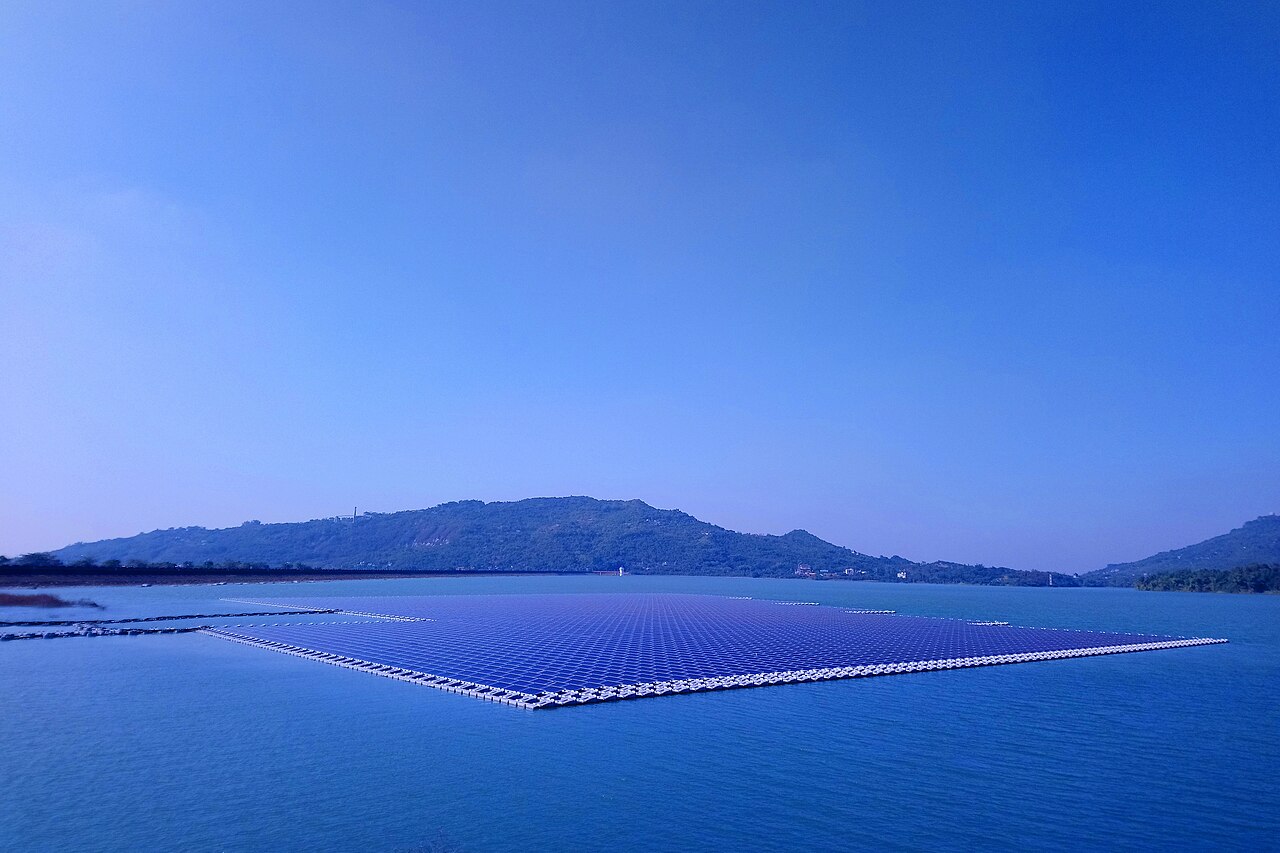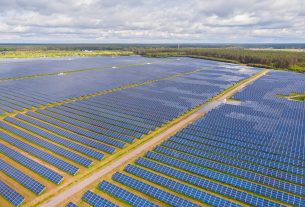Ghana has unveiled a groundbreaking 5-megawatt floating solar project on the Black Volta River, engineered by local experts from the Bui Power Authority. This innovative installation represents West Africa’s largest floating solar venture and signifies a significant leap forward in the nation’s renewable energy ambitions.
The floating solar power plant utilizes photovoltaic modules placed on water bodies, optimizing land use and enhancing solar panel efficiency. Not only does this innovative solution conserve water by reducing surface evaporation, but it also showcases the potential for deploying similar technologies on ponds, lakes, reservoirs, and other water surfaces.
Aligned with Ghana’s National Energy Plan, the successful implementation of this project supports the country’s target of achieving a 10% increase in renewable energy penetration by 2030. Minister of Energy and Green Transition, John Jinapor, highlighted Ghana’s strategic commitment to renewable energy development, with a focus on solar, wind, and mini-hydro projects to meet the nation’s escalating energy requirements.
Minister Jinapor announced plans to establish the Renewable Energy and Green Transition Fund, aimed at supporting research and development of local green technologies. The fund will facilitate the provision of solar-powered solutions across various sectors, offering relief from high electricity tariffs for state institutions and promoting sustainable energy practices.
Ghana’s emphasis on renewable energy and the introduction of pioneering initiatives such as the floating solar project underscore the country’s dedication to fostering sustainable energy solutions and advancing green technology innovation to address evolving energy needs effectively.
Ghana Launches West Africa’s Largest Floating Solar Project to Boost Renewable Energy Goals
Ghana has unveiled a groundbreaking 5-megawatt floating solar project on the Black Volta River, engineered by local experts from the Bui Power Authority. This innovative installation represents West Africa’s largest floating solar venture and signifies a significant leap forward in the nation’s renewable energy ambitions.
The floating solar power plant utilizes photovoltaic modules placed on water bodies, optimizing land use and enhancing solar panel efficiency. Not only does this innovative solution conserve water by reducing surface evaporation, but it also showcases the potential for deploying similar technologies on ponds, lakes, reservoirs, and other water surfaces.
Aligned with Ghana’s National Energy Plan, the successful implementation of this project supports the country’s target of achieving a 10% increase in renewable energy penetration by 2030. Minister of Energy and Green Transition, John Jinapor, highlighted Ghana’s strategic commitment to renewable energy development, with a focus on solar, wind, and mini-hydro projects to meet the nation’s escalating energy requirements.
Minister Jinapor announced plans to establish the Renewable Energy and Green Transition Fund, aimed at supporting research and development of local green technologies. The fund will facilitate the provision of solar-powered solutions across various sectors, offering relief from high electricity tariffs for state institutions and promoting sustainable energy practices.
Ghana’s emphasis on renewable energy and the introduction of pioneering initiatives such as the floating solar project underscore the country’s dedication to fostering sustainable energy solutions and advancing green technology innovation to address evolving energy needs effectively.
Agongdian Solar PV Park Picture on Wikimedia by Kaohsiung (For illustration purposes only).


